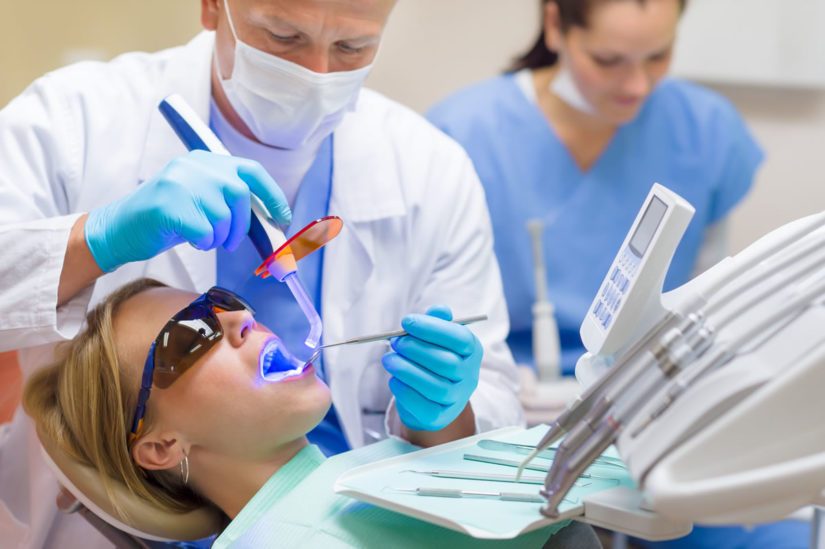
What To Expect After Tooth Extraction: A Patient Guide
If you’re wondering what to expect after tooth extraction, you’ve landed in the right place. It might not be at the top of your list, but sometimes the best solution to a dental problem involves removing your tooth. And many young people find themselves facing the removal of wisdom teeth. Regardless of the situation, knowing what to expect helps reduce your anxiety about what’s normal and when to be concerned.
Consider It Minor Surgery
Removing a tooth involves creating a small wound in your mouth. A tooth sits in the gum and bone, and we only see about 1/3 of the tooth structure above the gum line. The rest of it is anchored in the upper or lower jaw with thousands of tiny fibers that attach it to the bone.
After the tooth, bone, and gum are numbed with local anesthetic, your dentist applies steady pressure around the tooth to carefully detach it from the small attachment fibers. Pressure also slightly expands the bone and allows the tooth to loosen. In most cases, the tooth ends up out within a few minutes of precise, intentional movements.
In some cases, a tooth doesn’t easily move due to unusual roots that curve or extend deep into the jaw. Sometimes bone is less flexible than expected, or the tooth is difficult to engage because of deep cavities or broken pieces. If your dentist encounters this challenge, the gum is opened around the tooth, bone is carefully removed, and the pieces elevate out with the right technique. A few stitches are placed and healing begins.
What Comes Next?
At this point, you really start to wonder what to expect after your tooth extraction. Let’s look at a few things to keep in mind:
- Be patient with healing: The majority of your healing will take place over a period of two weeks, but the area will continue to change for several more weeks. Sometimes, small fragments of loose bone migrate their way to the surface and come out. But during the first 24 hours, it’s important to avoid vigorous exercise or heavy lifting
- Don’t skip eating: During the first 24 hours after a tooth extraction, you should go for soft foods and avoid hot beverages. Hard foods may aggravate the new wound, and hot beverages tend to soften the fragile clot. But after the first day or two, you can start to enjoy your normal eating habits.
- Rest wisely: A lot of restoration and repair goes on during sleep. If you’re not getting enough rest, healing tends to take longer.
- Stay in touch: If you have swelling that appears two or three days after your extraction, be sure to contact your dentist. If it’s accompanied by fever, difficulting breathing or swallowing, or bad-tasting discharge, make the call.
The Long Haul
Once you’ve started to heal, consider the longer term picture. Over time, the jawbone may begin to shrink and thin in areas where you’re missing teeth. You may also find that neighboring teeth tip into open spaces. Opposing teeth move down or up into edentulous areas. While this process may take years, you may end up with an unstable bite, difficulty chewing, and jaw pain issues.
Talk with your dentist about the best options for replacing your missing teeth or stabilizing your shifting teeth. Dental implants support natural, strong restorations that feel like natural teeth. A small bridge from one tooth to another may serve you, too. On the other hand, a removable appliance may be a quick and easy solution for replacing several missing teeth.
Moving On After Tooth Extraction
If you don’t have a dentist or you’re dealing with more questions about what to expect after tooth extraction, you’re in the right place. DentalChat provides the best platform to connect with licensed U.S.-based dentists. You can ask questions online and even connect with a nearby office that can help you with your needs. Feel free to jump on and see how we can help now or in the future!
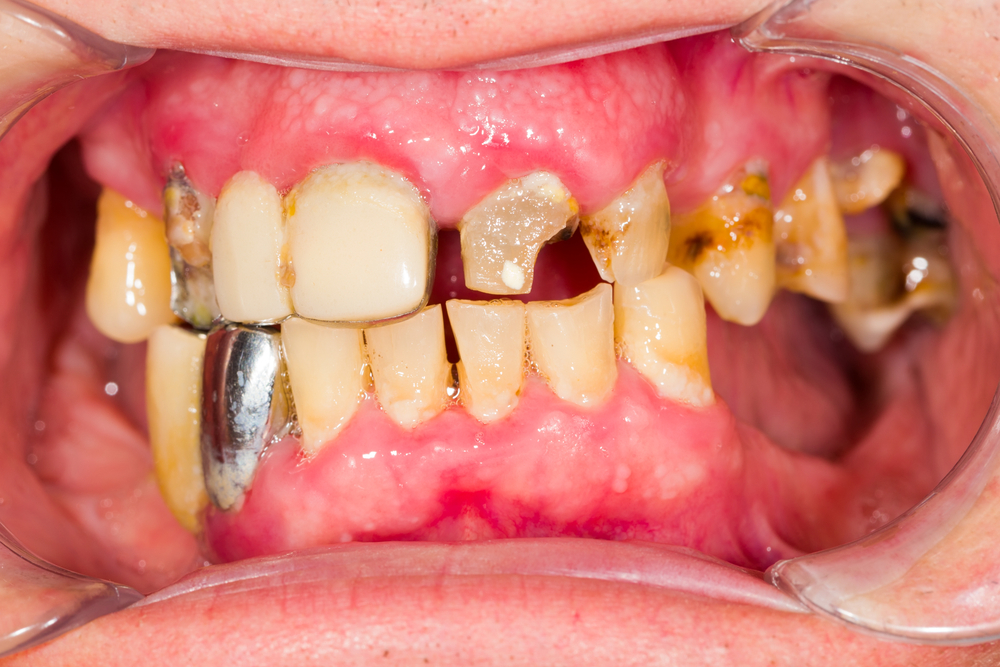
Bad Teeth and The Way Forward
Sometimes good teeth turn into bad teeth. It’s usually a frustrating, uncomfortable journey with a lot of treatment and expense along the way. But we need teeth for a few obvious reasons. Besides their important functional role, they also enhance a person’s physical appearance. So, one way or another, we need to maintain or correct teeth in decline.
Keeping teeth healthy takes a dose of care and diligence. If you’re careless and don’t pay much attention, it’s like not doing maintenance on your car: Eventually it’s going to catch up with you. Next thing you know, you’re headed down a road you never meant to end up on.
Millions of people find themselves with numerous cavities or gum disease, both leading causes of tooth loss. Sometimes there’s one reason, sometimes there are many. Usually, a combination of factors play into the affliction.
Why Do Teeth Go Bad?
Most people don’t realize it, but cavities are an infection. First, young babies often end up with a mix of bacteria from their mothers that reside on their teeth. Like all living organisms, these bacteria need energy to live. Since they love sugar and other carbohydrates, they’re happy when you drink a soda or chew dried fruit.
These oral bacteria create energy from sugars and produce acid as a waste product. You can imagine what happens when acid gets dumped on your teeth. Holes start to form in the weakened surface, and a cavity develops. Soon, you have bacteria invading the inside of the tooth and headed to the nerve. Next, an abscess develops and the tooth needs to be removed if too much damage has occurred.
A similar process occurs in gum disease. Gum-loving bacteria produce toxins that cause inflammation and bone destruction. Teeth go bad because they’ve lost their supporting bone around the base of them.
Bad Teeth Signs and Symptoms
If you experience symptoms of tooth decay, you need to visit your dentist as soon as possible. Waiting works well if you’re looking for a bus, but it’s not a great idea when you have mouth pain. The earlier that cavities are identified, the easier their treatment. If you experience the following symptoms, you should make firm plans to visit a dentist:
- Tooth pain including sensitivity, throbbing, or soreness
- Any kind of pit, hole, or sharp edge on a tooth
- Pus or drainage around a tooth
How Do You Handle Bad Teeth?
There isn’t a “one size fits all” solution for teeth that go into decline. In many cases, repairs can be made to the existing teeth. Or gum disease can be controlled with therapy and new homecare habits. When teeth cross the proverbial line, they may need to be removed. In this scenario, dentures become one possible solution to the missing teeth issue. However, dentures have a few drawbacks to consider:
- Dentures are by nature removable appliances, and they may move in the mouth and cause sore spots on the gums.
- Dentures do not provide the same eating experience that natural teeth do. Hence, there is a chance that they may lead to poor eating habits, weight loss, and nutritional deficiencies.
- Sometimes, dentures are not fitted properly and have a poor bite. This may also lead to changes in jaw joint thus creating jaw, neck pain, and headache.
Fortunately, dental implants offer up a wide array of options if bad teeth end up needing removal. These strong, titanium cylinders sit in the jawbone and mimic the root of a tooth. This powerful support system can be used to hold a denture firmly in place. On the other hand, they can replace a single tooth or several missing teeth.
Cost may be a consideration when it comes to dental implants. However, this depends on the number of dental implants being placed and other associated procedures which can be discussed with the dental office or the dentist.
We Can Help
Many people wonder how they can find the best dental info and best dentists articles online. The reason many people are looking for local dental information online is fairly simple. For one, they want to know what is going on in their mouth. For instance, if your dentist tells you that you need a root canal on your back molar and need to see an endodontist, you want to know more. You may be curious to find out what is a root canal and who are local endodontists? What does an endodontist do?
At Dental Chat, we help cut through the confusion and provide accurate, valuable blogs on every topic. Here is a local dentist link to Endodontics Dental Chat about Local Endodontists. The best part is that we network with local dental blogs and local dentist bloggers who share their local dentist articles with us. We are looking to list the best local dental offices and best dentists for patients that need to have a root canal or another dental service. We are always looking to expand and grow and offer the Best Local Dental
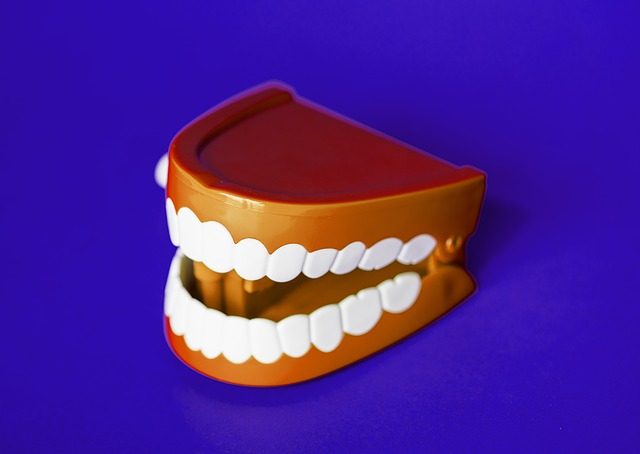
Online dentist communication with patients
New technology is making dentistry and health care more exciting & providing more tools to connect. In the last twenty years, technology has rapidly progressed. This technology is changing health care.
There are many people who have a dental question who do not want to go to the dental office. We are live dentist chatting online with people. Patients can local dentist chat with dentists – using modern technology.
Telemedicine industry is rapidly expanding and innovating. People are using various telemedicine sites – to communicate with doctors.
Excellent time for people to share their dental story — Share your dental story online with us. Here is the link to share your dental story on Dentalchat.
https://awsapi.dentalchat.com/my-story/
Local live dental chat and Best dental marketing online with us at DentalChat. We are communicating with people that have dental questions. Best teledentistry communication and local teledentist chat online with us. Great time to dental market with us.
We are at DentalChat.com looking to bring exciting new dental technology to improve dental care & increase people’s dental knowledge.
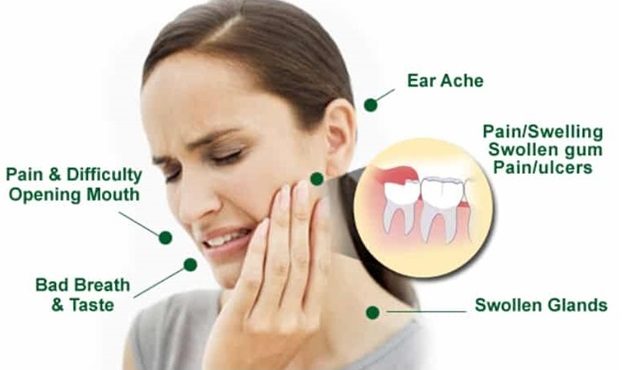
Do Wisdom Teeth Need To Be Removed? Here’s A Look
Growth brings along a lot of questions, including “Do wisdom teeth need to be removed?” The answer isn’t always as straightforward as it seems.
A normal adult mouth has 32 teeth, which (except for wisdom teeth) have erupted into place by about age 13. The human teeth function to mechanically break down items of food by cutting and crushing them in preparation for swallowing and digesting. Humans have four types of teeth: Incisors, canines, premolars, and molars. The incisors cut the food, the canines tear the food, and the molars and premolars crush the food.
The roots of teeth are embedded in the maxilla (upper jaw) or the mandible (lower jaw) and are covered by gums. Teeth are made of multiple tissues of varying density and hardness the third and final set of molars that most people get in their late teens or early twenties are called wisdom teeth.
Are They Worth Having?
These teeth can be a valuable asset to the mouth if they’re healthy and properly aligned. But more often, they are misaligned and require removal. There are certain myths related to wisdom teeth in Asia that is a person’s intelligence is completed once a person’s wisdom teeth are present. However, science has never proven such myths! A person whose wisdom tooth is coming to surface may not have any symptoms. On the other hand, they may have severe pain and difficulty eating and talking.
When wisdom teeth are misaligned, they may be positioned at various angles in the jaw. Poor alignment of wisdom teeth can crowd or damage adjacent teeth, the jawbone, or nerves. Wisdom teeth can also be impacted if they are enclosed within the soft tissue and/or the jawbone or only partially break through or erupt through the gum. Partial eruption of the wisdom teeth allows an opening for bacteria to enter around the tooth and cause an infection, which results in pain, swelling, jaw stiffness, or difficult breathing.
Do Wisdom Teeth Need To Be Removed? Maybe Not?
Dental experts don’t always agree that wisdom teeth need to be removed. Some suggest they should be left unless they’re causing problems and pain. However, others suggest taking them out because they only present risks, not benefits. The decision should come from you and your dentist collaborative discussion. If they’re causing significant pain or damage to neighboring teeth, they need to go.
There are still many unanswered questions about wisdom teeth. This is one of the reasons why even the experts don’t always agree what to do about them. Some dentists recommend removing wisdom teeth no matter what, even if they aren’t causing any problems. This perspective is based on the fact that wisdom teeth will usually end up causing problems in the long run.
Another argument is that we simply no longer need wisdom teeth to function. Wisdom teeth often do not come in or they only partially break through the gum. Up to 80% of young people in Europe have at least one wisdom tooth that hasn’t broken through. This is more common in the lower jaw than it is in the upper jaw. The reason is usually that there isn’t enough room in the jaw.
Time Brings Changes
Evolution has made adjustments to our jawbone size throughout human history. The jaws of modern human beings are smaller when compared to their ancestors. This presents a range of problems when wisdom teeth try to erupt into place. They often become blocked by other teeth and grow inside the jaw.
If the wisdom tooth erupts partially, it tends to create hard to reach area where bacteria can accumulate resulting in severe infections of the surrounding tissues and gums.
When wisdom teeth remain fully impacted under the gum line, they may form cyst or tumor that can damage the jawbone and teeth if left unaddressed. Hence most people undergo wisdom teeth removal to prevent themselves from the potential problems which may arise.
- Local Emergency Dental Chat Online:
Great time to network and market online with us. Local Emergency Dental Chat Online and Search for Local Dentists online with us @ DentalChat.com. We welcome guest dental bloggers on DentalChat.
- Find a Dentist – Connect with Local Dentists in your area:
Are you looking to Find a Dentist in your area? At DentalChat, we can help with that! DentalChat.com connects you in real-time with dentists in your area.

What Causes Yellow Teeth? Brighten Your Smile
Our teeth are a major indicator of our oral hygiene, and they can boost or deflate the self-esteem of even the most confident people. That’s why it’s imperative that we take care of our teeth and make sure they’re cleaned daily. Even with regular homecare, some people see their teeth discolor. That frustration inevitably begs the question, “What causes yellow teeth?”
That question is one of the most common inquiries we get from people who want to know just why their teeth are turning yellow, and how they can get whiter teeth and keep them that way. That question makes it pertinent to know the causes of yellow teeth and how to prevent or whiten discolored teeth.
How Did They Get This Way?
There are many reasons why teeth become yellow or stained. These reasons range from poor oral hygiene to genetics. Some of the reasons for yellow teeth include:
- Poor Oral Hygiene
Failing to brush at least once a day can cause yellow teeth as well as other dental complications. In addition, eating sugary food or foods with high acidity can cause plaque buildup and excessive damage to the enamel of the teeth. When this happens, food pigments can easily be absorbed into the dentin, the layer next to the enamel. These stains further weaken the enamel and cause visible yellow and brownish yellow stains on the teeth.
- Foods and Drinks
One factor responsible for what causes yellow teeth is the type of food or drinks you consume daily. For instance, A person who consumes a lot of tea and coffee without taking some time to brush daily will end up with stained teeth. Red wine, white wine, dark sodas, and energy drinks with synthetic flavors can also cause yellow teeth.
Certain types of food like curry spices, berries, tomatoes, tobacco leaves, vinegar, and others have been known to contain pigments that are capable of leaving a stain on the teeth.
- Smoking
Smoking doesn’t just cause damage to the lungs: It also causes yellow teeth. The nicotine contained in cigarettes generally leaves brownish stains on the teeth surface.
- Aging
It is normal for the teeth to start turning yellow as we age. This is because the enamel, the outer surface of the teeth, wears out gradually as it’s exposed to different acids in the food and drinks consumed. As the enamel gradually erodes, the layer beneath, dentin, begins to show. The dentin isn’t white like enamel, so it causes teeth to appear discolored.
- Genetics
Tooth coloration is partially influenced by genetics. Some people have naturally colored teeth as a result of the inherent traits of the genetics in their families. Apart from white, there are generally four other shades of color that appear naturally in teeth. These include reddish yellow, reddish brown, gray, and reddish gray. These colors also vary in depth across the light spectrum ranging from light to dark.
- Excess Fluoride
Excess fluoride is bad for the teeth. Fluoride is great for teeth, but when fluoride intake becomes excessive, it can lead to Fluorosis: Yellow and brownish yellow spots appearing on the teeth. Fluoride is present in toothpaste, fluoridated water, and some other prescription drugs. It’s important to consult a dentist to ensure that your fluoride intake is not excessive.
Other causes of yellow teeth include accidents, physical trauma, and antibiotics like Tetracycline. If taken during pregnancy or before the age of eight, this antibiotic can cause permanently stained teeth.
How To Prevent Yellow Teeth
In some cases, yellow discoloration can be prevented or reversed using simple and natural ingredients found at home, some of which include:
- Baking Soda and Hydrogen Peroxide
These two ingredients, when mixed to form a paste, can help reduce the yellow coloration of teeth. A 2012 study found these two ingredients and toothpaste containing them helpful in improving teeth whiteness. A DIY paste can easily be made at home by mixing two tablespoons of hydrogen peroxide with one tablespoon of baking soda. Any toothpaste that contains baking soda and hydrogen peroxide can also do the job.
- Apple Cider Vinegar
Apple cider vinegar, when used in small proportions, can help get stains off the teeth and improve teeth whiteness. But if it’s used too frequently, it can erode the enamel and damage the teeth surface. Therefore, it’s not meant for everyday use. Use sparingly, cautiously, and in small quantities.
- Vitamin C
The result of a 2007 study showed that periodontitis, caused by a buildup of bacteria on the teeth and in the gums, is worse in people with vitamin C deficiency. Periodontitis, or gum disease, is a contributing factor to discoloration of teeth as gums recede and expose the darker roots of the teeth. Vitamin C is just one small influencer of this inflammatory condition that afflicts 30% of the population. But it emphasizes that good nutrition contributes to all parts of general health, including oral wellness.
Apart from these remedies that can be used as preventive measures, other dental remedies abound which help to improve or restore teeth whiteness. Some of them include:
- Good Oral Hygiene
Almost everyone knows good homecare habits help to keep our teeth and mouth healthy and fresh. It’s good practice to brush at least twice daily. Brushing for two or three minutes each time and brushing every tooth gently and in circular motions helps remove plaque and food. Flossing the teeth also helps to keep the mouth clean and free of food remnants that are stuck in the teeth and gum. In addition, teeth whitening toothpaste is also becoming more popular with people that need to know what causes yellow teeth. They won’t remove embedded stain, but they can help prevent more of it.
- Regular Dental Exam and Dental Prophy
To properly restore the natural color of your teeth, it’s important to consult a dentist. To top it off, a dental exam helps you discover the state of your oral health. One thing you can do is to see a dentist or dental hygienist regularly, at least every six months or twice a year. If your teeth are found unhealthy, a DENTAL PROPHY may be necessary. A Dental Prophy is a cleaning procedure that is done to remove large amounts of plaque buildup on the teeth and gums. And it helps to control periodontitis and gingivitis and prevent what causes yellow teeth. Furthermore, it’s often covered extremely well by dental insurance.
Just Do It!
In summary, many people what to know “What causes yellow teeth?” There are many factors, some of which can be prevented with good oral hygiene natural home remedies. Yellow teeth can also be treated professionally by dentists and then maintained with a host of recommended dental solutions. So, don’t forget to visit your dentist regularly and keep your oral health at the top of its game!
At DentalChat, we’ve got you covered. Connect online with a dentist in your area right now, in real-time!
Want to Learn More? Cosmetic Dentistry Blog: Here’s an interesting article on DentalChat about cosmetic dentistry and cosmetic dental procedures –
https://dentalchat.com/cosmetic-dentistry-procedures-and-cosmetic-dentist-chat
At DentalChat, we network with leading dental bloggers and professionals in the dental industry who may want to contribute daily blogs or articles to share with us. Online Dental Questions Blog, Local Dentist Chat Online and Ask Dentist a Dental Question with us. We innovate dentistry with real-time, online interaction between dental practices and patients. Dentalchat was founded by a dentist and includes dental professionals on our management team.
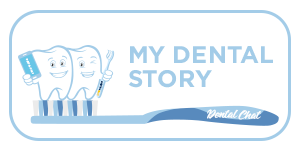
Bad Teeth Blog, Dentures or Implants
Unfortunately, there are millions of people that have teeth with large amount of caries. Many times they have not had professional dental care / have not gone to a dentist for many, many years. Sometimes, they only go for emergency dental care. We are Dentist Chatting about Bad Teeth in this Dental Blog.
Many times, these patients end up with some form of a denture – whether it is a partial denture or full mouth set of dentures. Some of these people, do want to get something better than just dentures.
Problems with Dentures –
Why do people want to get something better than just dentures – well dentures can be ill fitting and can be hard to chew with. Dentures are by nature, removable appliances – that can move in the mouth when chewing. Hence, these people with dentures can possibly be having sore spots in the mouth, etc.
Dentures Blog – Dentures and Dental Implants Information online –
Dentures over time can become loose because of jaw bone recession. One option now available, is getting dentures with dental implants. With this option, patients can have better-looking teeth and also have better retention inside the mouth. That is, the denture is attached to dental implants – hence, less movement inside the mouth and better chewing.
One thing to keep in mind – is the cost involved with getting dental implants and dentures. The cost can be much higher, depending on the number of dental implants being placed and the other gum procedures that may be involved. Can discuss with your dentist / dental office various dental treatment options. We have other Dentist Blogs to check out on DentalChat.com. Here is a Dentist Blog about Best Dental Implants
https://dentalchat.com/best-dental-implant-information-best-dental-implants-info-online
Bad Teeth Blog, Dental Implants Discussion & Denture Blogging with us at DentalChat. We are networking with dental bloggers @ Dental Chat.
In summary – we did a Dentist Blog about dentures. There are more options than ever for people with bad teeth (people with many caries). Each of these options has various price points and differing dental treatment plans.
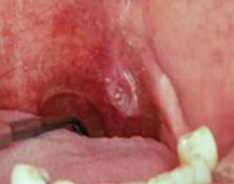
Most Common Oral Cancer Chatting – Mouth Cancer Chat
We get various dental topics people want for us to discuss online – here at DentalChat. One of the dental topics or areas of dentistry get asked about is Oral Cancer – which is commonly referred to as Mouth Cancer by some people.
Most Common Oral Cancer Chatting – Mouth Cancer Chat:
We will be discussing the most common Oral Cancer / Mouth Cancer in this Dental Blog – majority of oral cance are a form of squamous cell carcinomas.
By some statistics, approximately 90 percent are squamous cell carcinomas, originating in the tissues that are around or line the mouth and lips. Many times mouth cancer involves the tongue, that is a reason – many times your dentist checks your tongue when doing a oral exam.
Discussing oral cancer online:
At what age does oral cancer / mouth cancer usually be diagnosed? The majority of people with oral cancer happens between the ages of 50-70 years old – that is, oral cancer is usually diagnosed between the ages of 50-70.
Oral cancer should be checked for in youth and adults. For those who use smokeless tobacco – they should be regularly checked for oral cancer and should let their dentists know that they use smokeless tobacco.
Dentists and oral surgeons have some great dental xray machines, that can show in more detail – if have oral cancer. Also, they can take a biopsy. We will be discussing this topic in more depth @ DentalChat. At Dental Chat – we discuss various dental care topics. For instance, here is a article about root canal therapy and treatment
root canal treatment article https://dentalchat.com/local-root-canal-chat
We are networking with health care technology companies and online digital media companies – great time to network and market with us at DentalChat.com.
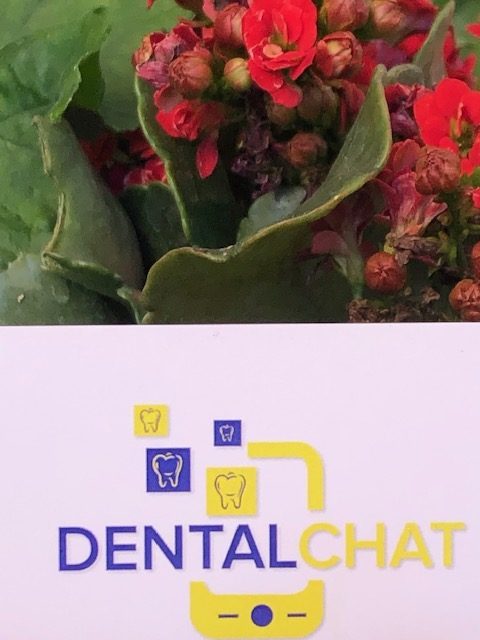
TMJ Chat and Online Bruxism / Clenching Teeth Blog
Many times people with TMJ are checked for bruxism as well. What do TMJ and Bruxism have in common? In this blog / article on DENTAL CHAT – we will be briefly discussing this dental topic.
One area that is very perplexing for people with it and for dentists that are looking to treat it – is TMJ Pain. It is not uncommon for a long suffering person with TMJ pain, to go to multiple dentists and dental offices – to try to find a way to best treat it.
TMJ Chat and Online Bruxism / Clenching Teeth Blog about various dental topics with us – we always appreciate your feedback and suggestions. Temporomandibular joint known as TMJ – TMJ pain or TMJ syndrome is a pain in the jaw / TM joint that may be due from various factors. It is at times vary hard to figure out and even harder to find the right treatment. Many times medications and relaxation is recommended – and some even suggest forms of surgery, though this possibly may or may not help. TMJ is where the upper and lower jaw connect / right around the front of the ear. Basically, the TMJ are the 2 joints that are connecting the jaw to the skull. Lot of facial muscles are connected around there. Some people with TMJ feel a clicking in the tmj when opening wide or chewing. It can be very painful and annoying for people with this condition. We will discuss further in coming articles here on DentalChat.
Bruxism or clenching of the teeth – usually when sleeping can greatly damage your teeth. Many times will see the teeth are kind of flat in the back, with people that are grinders or who have this condition. Generally, people with high level of stress and tension, can be doing this grinding or clenching of teeth called bruxism. Because people are over working their jaw and mouth, and clenching their teeth – some suggest that people with severe bruxism – that they may be affecting the TMJ & causing it to have problems. People with bruxism are usually recommended a form of what is called a night guard, to wear while they sleep >> mostly to try to protect the teeth.
Both bruxism and tmj pain are areas, that much research is still being done. We will be discussing this further in coming dental blogs and dental articles here on Dentalchat – we welcome your feedback and suggestions.
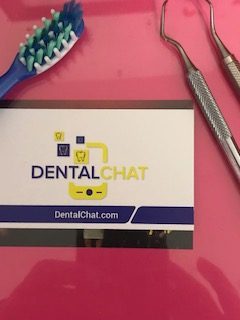
Dental Insurance plans discussion online
We are at Dental Chat looking to discuss many dental topics – This article will be — Dental Insurance Plans Discussion Online, with us continuing this discussion in future blogs and articles on here @ DentalChat. We do appreciate our readers feedback and dental suggestions.
It is estimated that more than 70 million people in the US do not have dental insurance. Unlike medical insurance, which many more people have – Dental Insurance is not a high priority for many people. Most people have dental insurance through their job or place of employment – though, many times, the actual dental coverage is somewhat little – with many people having to pay out of pocket a large portion of various dental services.
Most dental insurance plans cover for the most part dental exam and prophy (dental cleaning) once every 6 months. This falls under preventive dental care. For crowns and dental implants, each person needs to check carefully what, if any of the cost will be covered.
- Dental Insurance Benefits Blog:
Many people get their dental insurance from the company that they work at. These companies sometimes offer various types of dental insurance policies to choose from. Good to check to see the differing Dental Benefits each dental insurance offers.
For one, dental crowns – are by many dental insurance plans only covered for 50% of the cost — with the other 50% being paid by the patient. This can vary greatly from plan to plan – even with the same dental insurance company. Hence, each person will need to check with their dental insurance to make sure. Dental implants are usually Not covered by many dental insurance companies – again, will need to check. Dental Insurances Chat online with us, discuss dental hygiene, dental services discussion and more at DentalChat. Many people have a dental question can ask us on here – we are looking to provide dental information that we expect each person to do their own due diligence & even more research on.
- Dental Insurance Plan Blog:
We discussed dental insurance plans and did dental insurance chatting online with us. We will be discussing this further in future dental blogs & dental articles here at DentalChat.com. Can be asking us Dental Questions here and more. Our goal is to better inform people about various dental care topics.

Oral Bony Growth Chat- Discussing Online Mandibular Torus
- Oral Bony Growth Chat- Discussing Online Mandibular Torus:
We @ DentalChat like to discuss many dental topics. In this Dental Blog – We will be discussion Mandibular Tori and Oral Bony Growth Chat Online. Discussing Online Mandibular Torus formation and what to do if have them. Mandibular tori because it is excess bone, will notice that it is bumpy and somewhat firm — your dentist will let you know what it is, if have any questions.
One thing is to have common sense – if notice some growth and dont know what it is? Then, can go visit a dentist or oral surgeon and get it examined.
Mandibular Tori Chatting:
Many people do not realize they have mandibular torus in mouth, until being told by a dentist or hygienist that the bone growth is unusual. When people see or realize they have Mandibular Tori or Mandibular Torus in their mouth, they can be somewhat concerned. What is Mandibular Tori or Torus? Tori is a another way or word for bone growth that is usually in the lower jaw, which is is usually non-malignant. This bone growth can be uncomfortable, though many times it is not. Usually your dentist will keep watch of it and most likely leave it alone.
Sometimes, people with Mandibular Tori or Torus may have some pain – usually because injure the area or scrape it, etc. – best then is to keep it clean and maybe get fluoride rinses and can always see a dentist to see what is the cause of the pain.
